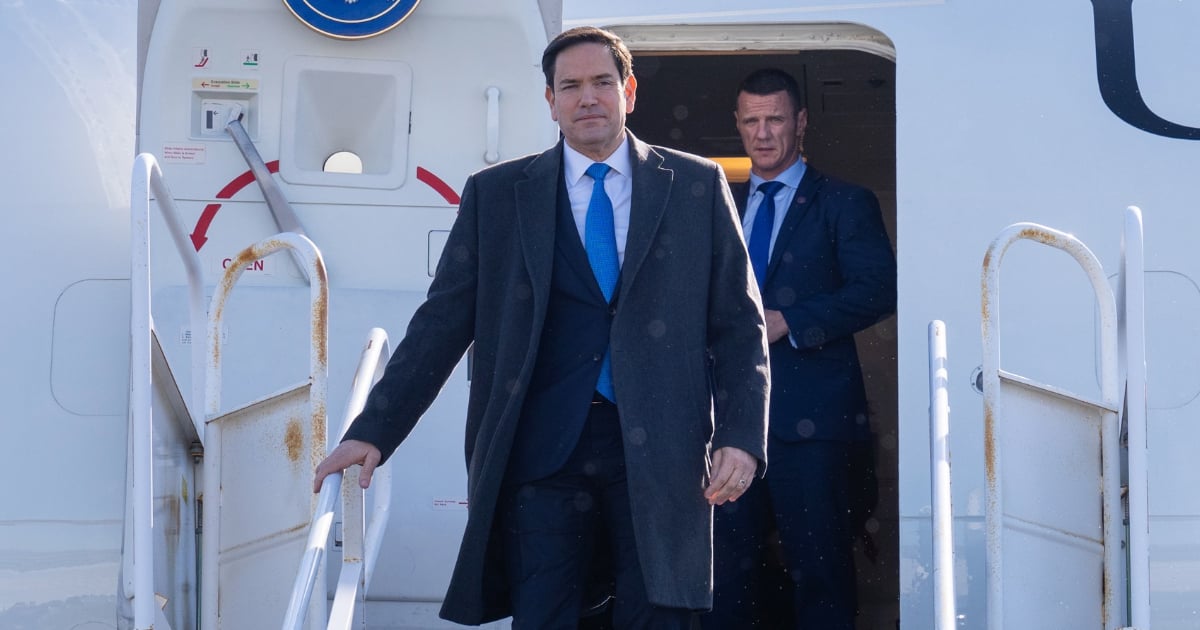The U.S. Secretary of State Marco Rubio announced on Thursday a new visa restriction policy that could affect thousands of people, focusing not only on individuals sanctioned for drug trafficking but also on their relatives, personal partners, and close business associates.
“We will use all necessary tools to deter and dismantle the flow of fentanyl and other deadly drugs entering our country”, Rubio wrote on his official X account, referring to his intention to enforce the Executive Order 14059 more strictly, which declares a national emergency in response to the opioid crisis in the U.S.
The announcement points to a , by preventing entry into the country for individuals who, without having committed any crimes, could be marked due to their personal or economic connections with individuals included on sanction lists.
The measure is based on Executive Order 14059, signed in December 2021 by former President Joe Biden (2021-2025), which authorizes the Department of the Treasury to:
Freeze assets in the U.S. of foreign individuals or entities directly or indirectly linked to drug trafficking.Prohibit transactions with those individuals.Impose sanctions on those who produce, finance, or distribute illicit substances such as fentanyl.
Rubio, the son of Cuban immigrants and a key figure in Latin American policy, did not specify nationalities, but the implementation of these restrictions could have consequences for individuals from countries with identified criminal networks, such as Mexico, China, and others. It could also affect Cuban citizens if they maintain ties with sanctioned individuals.
Who could be in the spotlight?
Members of international cartels or criminal networks.Producers or distributors of chemical substances used in drug manufacturing.Individuals or companies that facilitate financial operations for drug trafficking.Relatives and close associates of these individuals, even if they are not directly involved.
The policy is based on the International Emergency Economic Powers Act (IEEPA), a legal tool used to combat threats to national security.
Rubio’s announcement adds to other recent immigration measures that have tightened access for Cuban citizens to U.S. territory, such as last May, the visa restrictions against officials and foreign citizens who collaborate with censorship of Americans.
“Foreigners working to undermine the rights of Americans should not have the privilege to travel to our country,” stated the Secretary of State at that time.
Just a week later, President Donald Trump signed a presidential proclamation that partially restricts the entry of citizens from seven countries, including Cuba, citing “national security risks.”
The proclamation stated that Cuba is a state sponsor of terrorism, that it does not adequately cooperate with the U.S. on immigration issues, and that it records high rates of visa overstays.
As a result, entry into the U.S. was suspended for Cuban citizens under categories B-1, B-2, F, M, and J, and it was ordered to reduce the validity of other visas to the extent permitted by law.
Frequently Asked Questions about the new visa restriction policy in the U.S.
The new visa restriction policy in the U.S. focuses on denying entry to the country not only to individuals sanctioned for drug trafficking, but also to their family members, personal partners, and close business associates. This measure is based on Executive Order 14059, which aims to combat opioid trafficking, such as fentanyl.
Cuban citizens could be affected by the visa restriction policy if they have ties to sanctioned individuals. Additionally, the recent presidential proclamation suspends the entry of Cubans with B-1, B-2, F, M, and J visas, and reduces the validity of other visas because Cuba is considered a state sponsor of terrorism.
Although Marco Rubio did not specify nationalities, the policy could impact individuals from Mexico, China, and other nations with criminal networks linked to drug trafficking. It was also noted that the measure could affect Cuban citizens who maintain relations with the sanctioned.
Visa restrictions may affect members of cartels or international criminal networks, producers or distributors of chemicals used in drug manufacturing, individuals or businesses that facilitate financial operations for drug trafficking, as well as family members and close associates of these individuals, even if they are not directly involved in illegal activities.
